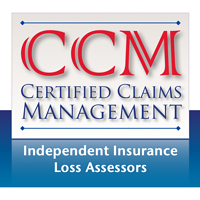Dealing with complex insurance claims
When making a high-value insurance claim for damage to property, such as from a fire or flood, making sure the claim is presented in the correct, most accurate and comprehensive way is of the utmost importance to ensure that the claim will be accepted and that the settlement covers all of your entitlement under the policy's terms. The use of your own Loss Assessors to deal with your insurance claim and your insurer's loss adjuster can substantially improve the result of your claim, improving both the amount paid out and the time taken to complete the claim handling process.
Benefit From Professional Representation
In the same way that you wouldn't go into a Court of Law without professional legal representation, don't enter into negotiations about settlement of your insurance claim without your own claims management loss assessors there to assist you, many thousands of pounds could be potentially at risk. Loss assessors understand how difficult and stressful dealing with these situations can be, and that they are there to help:
Your loss assessor will:
- Work for your best interest not the insurer's.
- Take away the stress, uncertainty, and confusion of dealing with your insurance claim.
- Handle the preparation and presentation of all claim documents.
- Ensure that you get a fair and fast settlement.
- Obtain estimates for repairs/replacement.
- Appoint builders from their approved panel of suppliers.
- Supervise and project manage the reinstatement process to ensure that all work is carried out in good time and to the highest standards of workmanship and materials.
- Provide a turn-key service from start to finish.
- Be a single point of contact for your claim.
- Reduce the chances of being the victim of "bad faith insurance practices".
Did You Know?
Commercial Or Consumer?
Commercial Or Consumer?
The FCA looks at consumers and commercial insurance customers differently. A consumer is defined as any party to an insurance contract who is not a commercial entity. With regards to consumers, ICOBS (Insurance: New Conduct of Business Sourcebook) considers it to be unreasonable for claims to be refused for:
- Failure to disclose a material fact that the customer could not reasonably have been expected to know.
- Misrepresentation of a material fact, unless the misrepresentation was negligent.
- A breach of warranty or condition unless the circumstances of the claim are connected with the breach.

